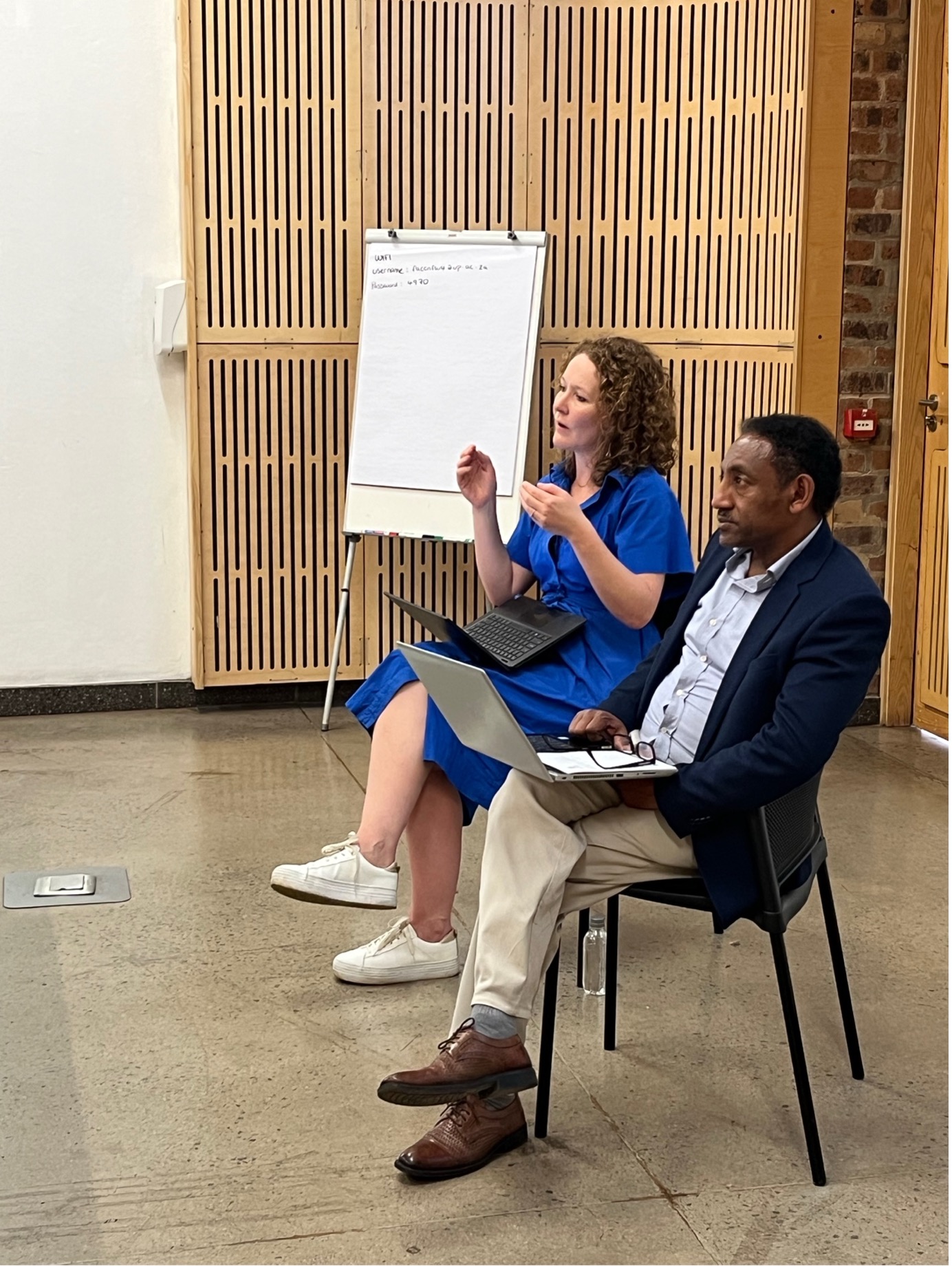
Leiden University and African Child Policy Forum hold ‘ground-breaking’ workshop on antimicrobial resistance (AMR) and human rights in Africa
What will a future with antimicrobial resistance hold for the rights and well-being of African children?
Pretoria, South Africa, October 26, 2024 — Leiden Law School in partnership with the African Studies Centre Leiden and the African Child Policy Forum (ACPF) convened a groundbreaking workshop on "Human Rights and Antimicrobial Resistance (AMR)" on October 24–25, 2024 at the University of Pretoria, South Africa. The event brought together 30 leading experts from global health and human rights to begin discussing the urgent issue of antimicrobial resistance through the lens of human rights and children’s rights and well-being in Africa.
‘Antimicrobial resistance is not just a global health challenge, it is a human rights, environmental rights, and sustainable development challenge, which is inextricably linked with climate change, biodiversity loss, and pollution. Bracing for a future with antimicrobial resistance, in which present and future generations are able to live sustainably with the microbial world will require us to go beyond biomedical interventions to recognise the voices and rights of those most affected by drug-resistance’, said Dr Sheila Varadan, Assistant Professor of children’s rights and global health at Leiden Law School and the African Studies Centre Leiden.
Over the course of two days, participants engaged in lively discussions, exploring the interlinkages between human rights, animal health, environmental rights, sustainability, health equity and antimicrobial resistance. The aim was to deepen cross-sectoral understanding on this issue, while also forging new ways to innovate rights-based solutions that both safeguard public health and promote human rights on the continent.
‘Bringing together scientific researchers and child rights practitioners to explore ways to bridge the two "worlds" of child health, which include AMR and children’s rights was a brilliant idea that was long overdue. Health must, first and foremost, be regarded as a fundamental human right, as enshrined in a host of international and African human rights instruments. A human rights lens and a justice and equity perspective should be the guiding pillars of response to healthcare challenges, including in emerging crises such as antimicrobial resistance,’ said Dr Joan Nyanyuki, Executive Director of African Child Policy Forum.
‘This workshop marked a significant first step towards forging regional partnerships needed to advance rights-based policies in the fight against AMR on the African continent,’ added Nyanyuki.
Professor Ann Skelton, praised the joint initiative, ‘only in working together, can we begin to tackle complex global health and planetary crises, such as antimicrobial resistance in a way that secures the rights of current and future generations.’ Skelton currently hold the Chair on Children’s Rights in a Sustainable World at Leiden Law School, and is Chair of the UN Committee on the Rights of the Child.
The workshop was convened with the support of the British Academy under the Global Convening Programme on Just Transitions for AMR. Leiden University and ACPF extend their gratitude to all attendees for their invaluable insights and contributions.




